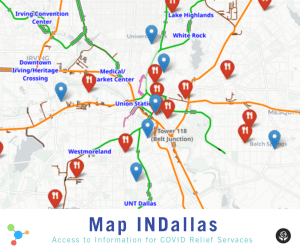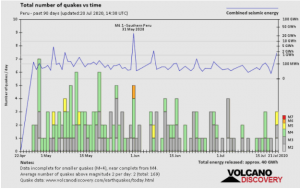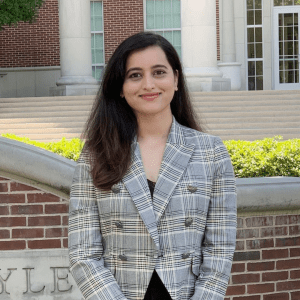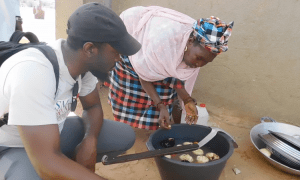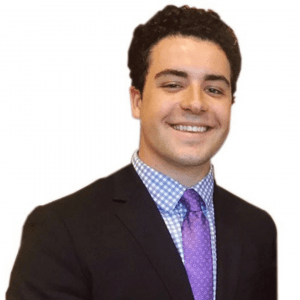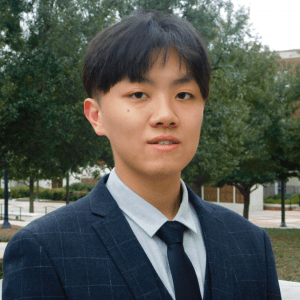Daily, a steady stream of student workers can be seen coming in and out of the Hunt Institute. They find creative ways to orchestrate meetings, stay connected with colleagues working remotely, and keep a positive attitude amidst a world that at times can feel turned upside down. Fanned out across the Institute’s main meeting area are carefully-positioned seating arrangements designed to facilitate the traditional “Town Hall” Monday Meeting while accommodating appropriate distancing and staying under the ten attendee limit. Seats are positioned in an effort to simulate a circle, including the students working remotely who attend the meeting via Zoom. Their faces can be seen on the TV mounted on the wall by the students seated in the Institute.
The Assistant Director, Corrie Harris, leads the meeting with the Undergraduate Program Manager, Manuela Murillo Sanchez. The communications team recommended a discussion on the theme “Pushing Through” for the Fall semester. It was unanimous; everyone agreed it was the best way to describe the present circumstance of juggling the pursuit of normalcy and the pandemic. Mariana Midolo, the Creative Development Lead, said, “The hardships of this time right now affect us as a team. That is why we want to focus on pushing through together.” Cullen Blanchfield, the Communications Team Lead, chimed in and said, “I think this theme is effective on a societal level, but outside of that, on an Institute level we have obviously gone through a lot of changes with more changes to come for the team, which means we are definitely going to have to push through together.”
The group continued to discuss the impact of the phrase. Varsha Appaji, the Researchers Team Lead, said, “I think it is a really great theme and I am glad that we are doing it. I think it would be great to emphasize that a lot of our work has to do with sustainability and promoting societal equality and inclusion which definitely fits in with the times right now.” Heads nodded across the group.
Mohammed Njie, Undergraduate Researcher and Social Entrepreneur, said, “I think it is important to realize that here at the Institute we are involved in a lot of projects where we can impact the lives of a lot of different people. For their sake, it is very important that we push through… they are waiting for us.”
Following the meeting, teams formed breakout sessions to plan their week, set priorities and goals, and brainstorm steps to push through together.
To read more about the Hunt Institute’s work to develop future-focused solutions to some of the world’s biggest problems, please click here. For the latest news on the Hunt Institute, follow our social media accounts on LinkedIn, Facebook, Twitter, and Instagram. We invite you to listen to our Podcast called Sages & Seekers. If you are considering engaging with the institute, you can donate, or sign-up for our newsletter by emailing huntinstitute@smu.edu

